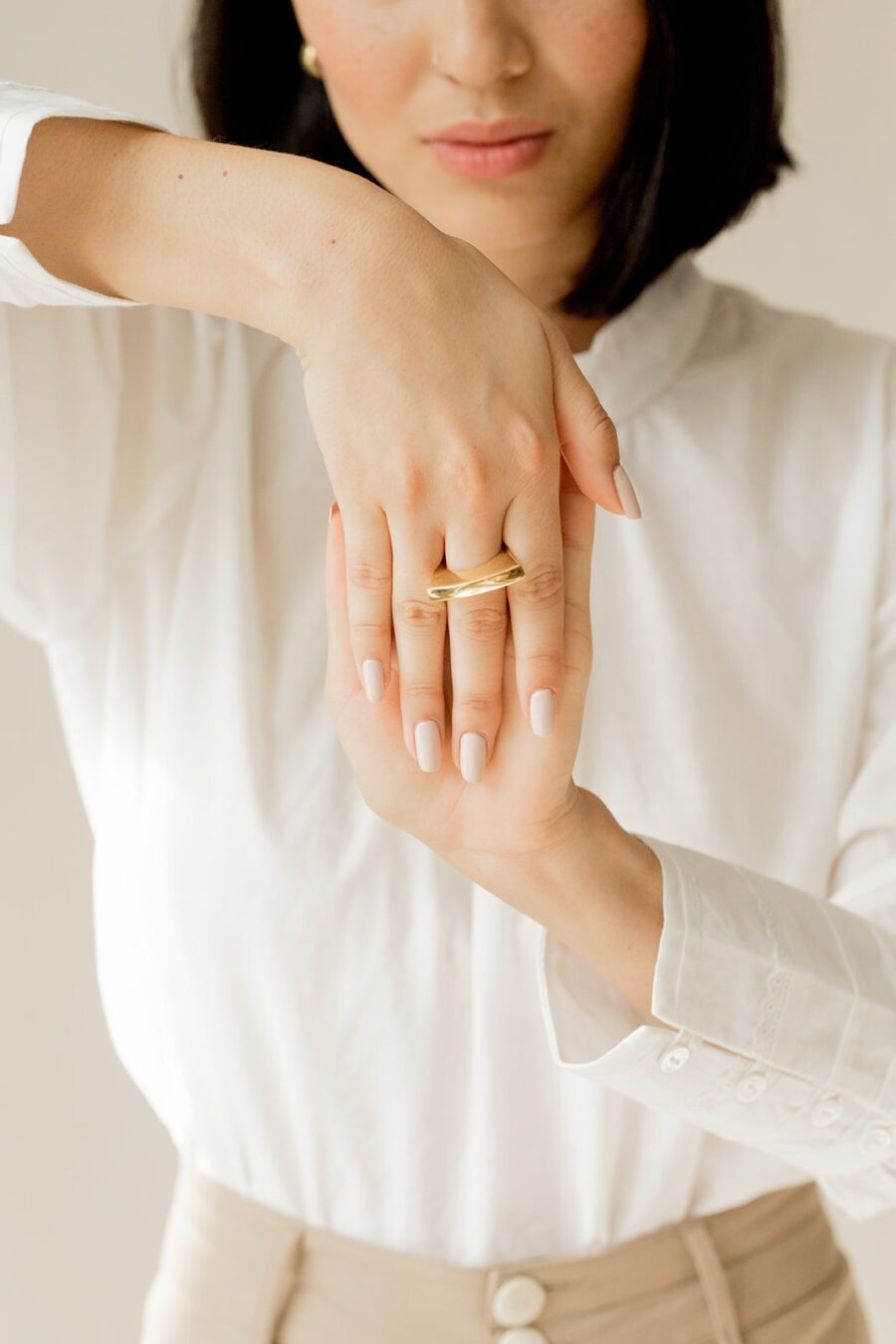
How To Maintain A Long-Distance Relationship (From Someone Who’s Actually Had One)
Does Distance Make the Heart Grow Fonder?
In the ten-odd years I’ve been with my partner, we’ve spent a cumulative of two years and 11 months living apart—sometimes in different countries.
“My partner and I have spent a cumulative of two years and 11 months living apart—sometimes in different countries.”
It started in college. He served in the military while I studied at a university in California. After two years of mostly virtual dating, we married, and I transferred colleges to be near his base in Colorado.
When he got out of the military four years later, we celebrated the life and career transition by taking a year to backpack abroad. During this time, we decided to do some self-discovery and soul-searching, and so we each spent six weeks traveling alone.
Two summers later, my partner took a job on a commercial fishing boat in Alaska while I moved our life to London for grad school; it was the longest long-distance season of our married relationship: six months in total. Fast forward two more years (hello, present day), and I’ve moved to Los Angeles alone to join The Good Trade while my husband wraps up our life in the UK. Next week, we’ll be reunited once again.
I’m aware my experience may be unusual. Seasons of physical separation in relationships aren’t unique, per se; couples of all ages do long distance for various reasons. Military deployments, career and education commitments, cross-country moves, and extended nature expeditions, among other things, take us away from the ones we love. But most couples haven’t chosen to do long distance as often as my partner and me. As we both enjoy our independence, and our aspirations often require extended travel, we’re learning to embrace the ebbs and flows of the sometimes not-so-conventional life we’ve created.
“It doesn’t matter how many days or weeks you’re away from your partner; separation is painful.”
This doesn’t make time apart easy, though. It doesn’t matter how many days or weeks you’re away from your partner; separation is painful. While I never take for granted the lessons these season teach me—trust, communication, independence, autonomy—I dread the distance nonetheless. And it isn’t until my partner is home and we’re reunited that I have enough perspective and clarity to process the positive and negative effects of long distance on our relationship.
If you and your partner are in the midst of a long-distance relationship or about the embark on a season of physical separation, here are a few tips to help you through.
Before
Set Expectations & Implement Boundaries In Your Communication
“Hi! How are you? Calling real quick on my way to work to talk about the budget and our plans for the holidays and whether you got my email about internet providers; I think I’ll call to set-up installation this weekend…”
This is me. Or it was me before my partner asked me to stop doing this.
“Not only are boundaries and expectations respectful of the other person’s time and emotional capacity, but they help eliminate potential conflicts.”
“Whenever you call, you only want to talk about to-do lists or the budget,” he said one afternoon. I began to defend myself, but then stopped; I knew he was right. Even though I missed him terribly and wanted to connect about our days and ask about how he was doing, my need to talk about plans and checklists won out.
Alternatively, there were times he’d call and begin offloading before I could find the mental or physical space to listen. I’d be running out the door or driving to the office, and he’d start telling me a story about his day without warning. I’d feel frustrated and annoyed that I was now deep into a conversation I didn’t have time for. And then I’d feel frustrated and annoyed at myself for feeling that way.
Setting expectations and implementing boundaries for communication while separated is essential. Not only is this respectful of the other person’s time and emotional capacity, but it eliminates potential conflicts—and who wants to fight when you’re miles and timezones apart?
Allocate the first or last ten minutes of phone calls to talk about checklists, and use the rest of your conversation to connect. Respect emotional boundaries, too. It’s as simple as giving your partner a heads-up and asking for permission before offloading so they can prepare themselves for the heavier, emotional conversations. This ensures both of you are in the right mental and physical space for every conversation.
Create and Share Your Calendars
One of the ways I feel connected to my partner when we’re doing long distance is by sharing our calendars. We both like seeing each other’s daily schedules and receiving iCal notifications for the other’s weekend trips and travel plans. We share our calendars when we’re not long distance, too, so continuing this practice while separated helps things feel a little more normal.
I’ve also found a calendar useful for setting timestamps during our long-distance stint. I’ll schedule a self-care weekend for myself and plan trips to see my family and close friends. Having things to look forward to makes the season feel a little less daunting.
During
Lean Into Your Community
I’m an introvert, and too often, I’ve isolated myself when my partner is away. Thankfully, I’m fortunate enough to have a community that knows to check in on me during these seasons. If I’m silent for too long, they’ll text or call or show up with dinner at my door.
“We can’t expect people to know our needs all the time; lean into your community on the hardest days.”
We can’t expect people to know our needs all the time, though, and so I’ve learned how to ask for help, and how to lean into others on the hardest days. Responding to texts and being honest about how I’m doing is my responsibility.
Go on Virtual Dates and Engage in Shared Activities
When we were first dating and doing long distance, my partner and I had weekly virtual dates via Skype. We ate dinner together—me sitting in my dorm room and him at his apartment dining table. Other times, we went to see the same movie at the same time, and then debriefed on the phone afterward.
On a few occasions, my then-boyfriend sent me coffee or dinner gift cards so I could go off-campus and have a solo-date. I treasured these experiences because, while he wasn’t there and the date had little to do with him, I felt loved knowing he’d thought of and planned something for me.
Listening to the same podcasts, watching the same TV show, or reading the same book are also ways you can feel connected to your partner, even when miles apart.
Let Your Routine Rescue You
“We must have grace with ourselves and our partner during this season, and lean into our routines on the very hardest days.”
Each person handles distance differently and, often, in unpredictable ways. We must have grace with ourselves and our partner during this season, and lean into our routines on the very hardest days. Daily rituals can rescue us when the distance feels too heavy to bare. I’ve found, sticking to my schedule is absolutely necessary for the days I’m feeling depressed or lonely, and my morning routine propels me when I lack drive and motivation. For you and your partner, encourage one another to lean into these daily habits and rituals.
Physical Intimacy When You Can’t Be Physical
If you and your partner are physically intimate, it’s important to discuss how you’ll both navigate sexual needs while apart. What you decide is entirely personal and unique to your relationship, but here are a few tips to consider:
1. Before separating, go shopping for quality sex toys together.
2. Talk about safe sexting, and whether or not that’s something you want to try in your relationship. Bustle has a roundup of the best safe sexting apps for long-distance relationships.
3. If you don’t feel comfortable with sexting or exchanging photos digitally, consider having boudoir photos taken before the two of you separate. This can be a fun and empowering way to keep physical intimacy alive, even while apart.
4. After the long distance comes to an end, take advantage of the positive sexual tension that will likely be present between you and your partner. Book a hotel room, splurge on organic lingerie, or explore something new together (like tantric sex).
After
Be Patient With Transition
The first week back with my partner always feels like bliss. We’re thrilled to see one another and want to spend all our time together. But then things get a bit rocky. This is something I’ve learned to see as natural, as it happens almost every time. Transition is, after all, challenging. After spending weeks or months apart, we have to relearn how to do life together.
“No matter how long you and your partner are apart, coming back together is as emotional as it is relieving.”
No matter how long you and your partner are apart, coming back together is as emotional as it is relieving. Embrace the range of these emotions and resist judgment—of yourself, of your partner, and of your relationship. Every couple will handle this shift differently; there is no one right way. Be patient with this transition. Before long, your life together will feel normal again.
In Conclusion: Distance Does Make the Heart Grow Fonder
If there is anything I’ve learned from living through multiple long-distance seasons with my partner, it’s this: distance does, in fact, make the heart grow fonder. Every time I reunite with my husband, I find I love him even more. Our fondness for one another’s company grows, and our respect for the other person’s autonomy and independence is further realized. While distance isn’t always necessary for strengthening love and relationships, it is one of its offerings. That alone makes enduring seasons of separation a little easier.
RELATED READING
Kayti Christian (she/her) is an Editor at The Good Trade. Growing up beneath the evergreens in the Sierra Nevadas, she returns to California after a decade split between states—including three years lived abroad. With an MA in Nonfiction Writing, she’s passionate about storytelling and fantastic content, especially as it relates to mental health, feminism, and sexuality. When not in-studio, she’s camping, reading memoir, or advocating for the Oxford comma.

